Eye Conditions
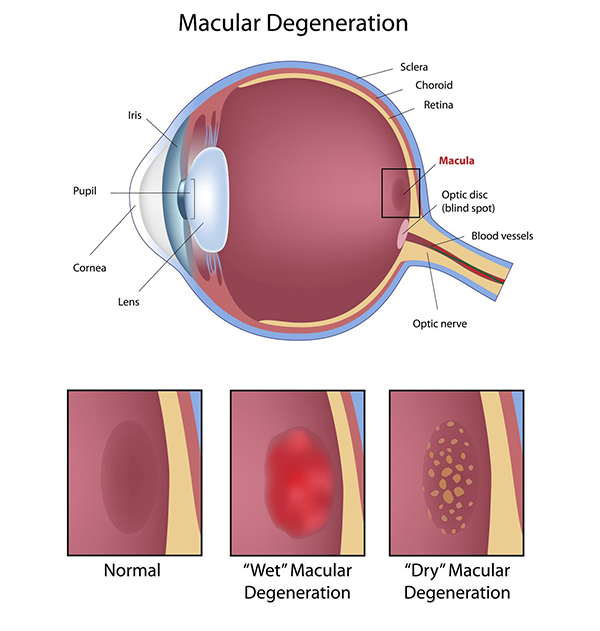
Macular Degeneration
Macular degeneration (MD) is a degenerative retinal eye disease that causes progressive loss of central vision, leaving the side vision intact.
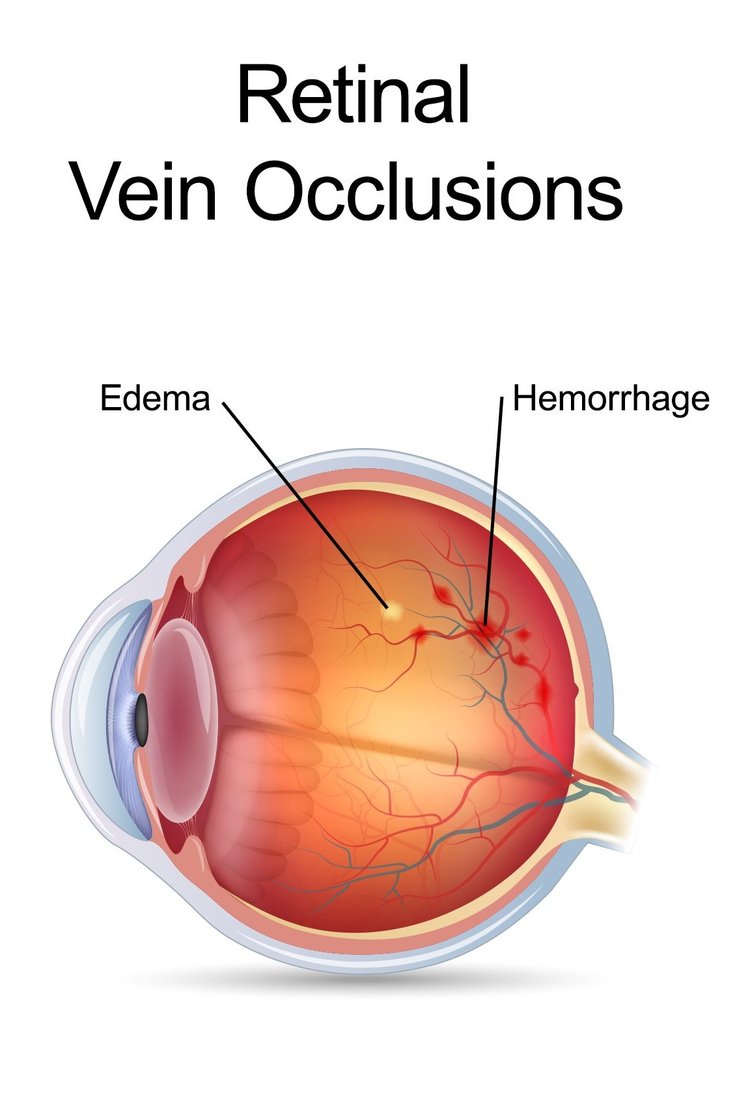
Retinal Vein Occlusion
Retinal vein occlusion happens when a vein in the retinal circulation becomes blocked.
There are two forms of retinal vein occlusion:
-
Central Retinal Vein Occlusion (CRVO): This occurs when the large central retinal vein at the optic nerve is blocked resulting in poor blood flow throughout the entire retina and can cause severe visual loss.
-
Branch Retinal Vein Occlusion (BRVO): This occurs when a branch of retinal vein is blocked. Visual loss may not as be severe as CRVO.
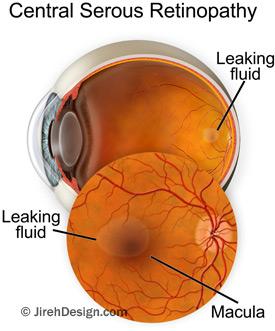
Central Serous Retinopathy
Central serous retinopathy (CSR) also known as central serous chorioretinopathy is a condition associated with accumulation of fluid in the space beneath the retina.

Cataract
The lens of the eye is generally transparent but if a cloudy area develops within the lens, this is called a cataract.

Glaucoma
Glaucoma is a condition affecting the peripheral (side) vision and often damages the optic nerve. It is commonly a slow progressing condition leading to tunnel-vision, leaving central vision intact.
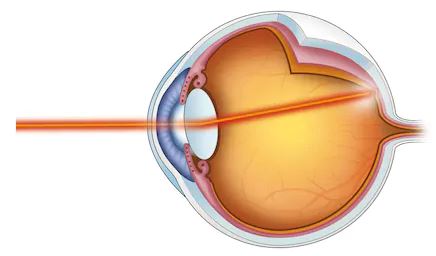
Myopic Degeneration
Myopic degeneration is a condition found in people with severe short-sightedness or high myopia which is characterised by progressive stretching of the eyeball that damages the retina.
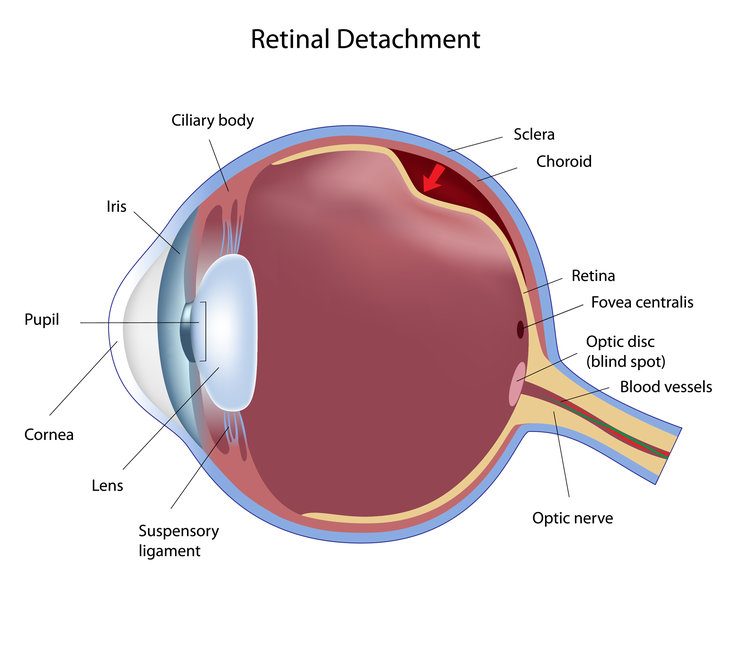
Retinal Tear or Detachment
Retinal tear or detachment (RD) is an eye condition in which the retina peels away from its underlying layer of support tissue. It is similar to wallpaper peeling off a wall. Most retinal detachments are the result of a retinal break, hole or tear.
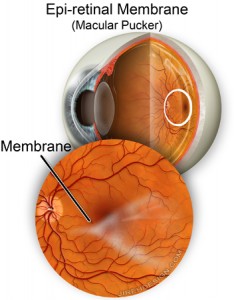
Epiretinal Membrane
Epiretinal membrane, sometimes called a macular pucker, is a thin sheet of fibrous tissue that develops on the surface of the macula (central part of the retina). It is an abnormal wrinkling of the retina, the film at the back of the eye.
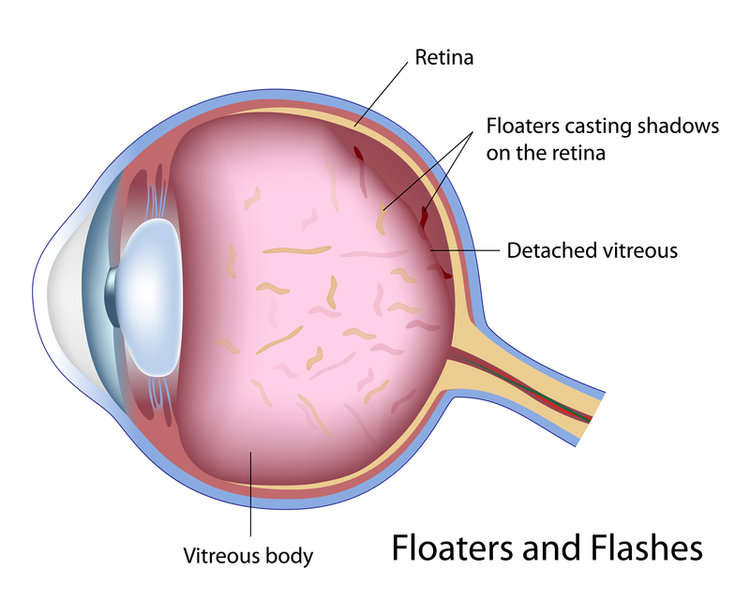
Flashes and Floaters
Flashes are flickers or streaks of light that usually occur in the peripheral vision (up above, down below, or to either side of your central vision). Floaters can look like little bugs, stars, threads, or cobwebs.
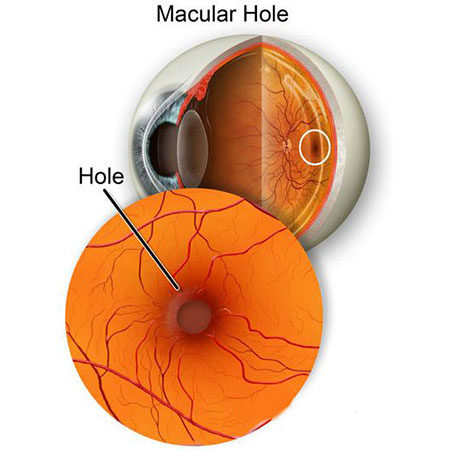
Macular Hole
A macular hole is a small break in the macula. Macula is the central area of the retina that is responsible for central vision such as reading, driving, and seeing fine details.
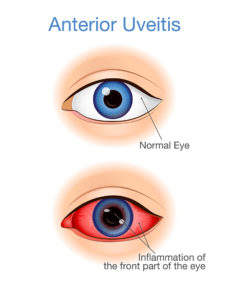
Uveitis
Uveitis is inflammation of the uvea, the middle layer of the eye, which brings blood supply to other parts of the eye.
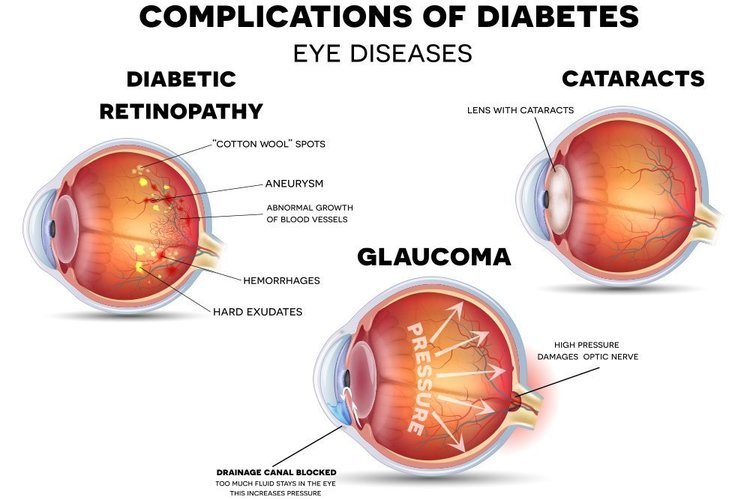
Diabetic Eye Disease
Diabetic eye disease refers to a group of eye problems that people with diabetes may experience as a complication of diabetes, including:
-
Diabetic Retinopathy: damage to the blood vessels in the retina.
-
Cataract: clouding of the eye’s lens. Cataracts develop at an earlier age in people with diabetes.
-
Glaucoma: increase in fluid pressure inside the eye that leads to optic nerve damage and loss of vision.
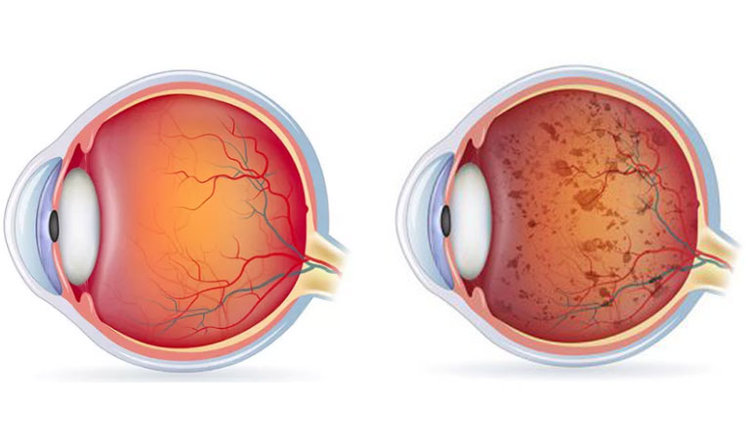
Inherited Retinal Dystrophies and Retinitis Pigmentosa
Inherited Retinal Dystrophies are genetic disorders affecting the retina which are usually chronic, disabling disorders of visual function. This means that people are born with a defect in a gene that affects the eye, in particular the retina. The most common of the inherited retinal dystrophies is the family of genetic eye conditions known as Retinitis Pigmentosa (RP).
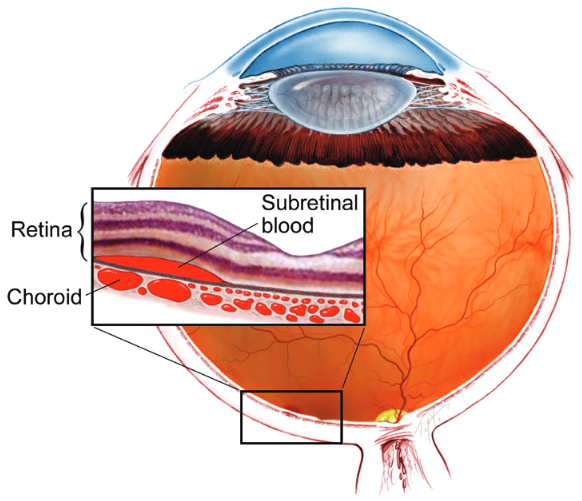
Polypoidal Choroidal Vasculopathy
Polypoidal Choroidal Vasculopathy (PCV) is a chronic eye disease where there is fluid leakage and bleeding from abnormal blood vessels of the retina and choroid on the inside back wall of the eye (Exudative Chorioretinopathy).
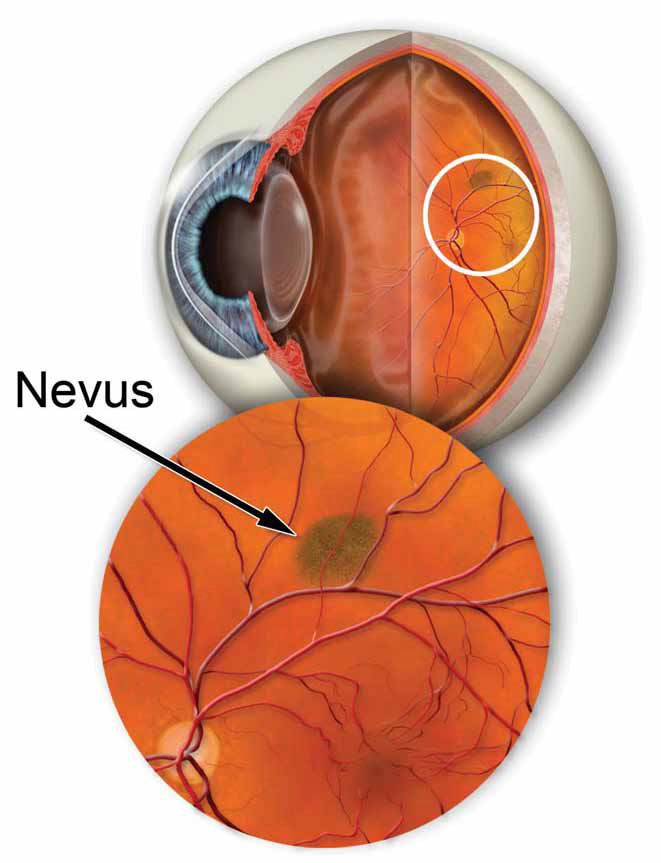
Choroidal Nevus
A choroidal nevus is a flat, benign and brown-green colored area at the back of the eye, often seen in the pigmented layer beneath the retina called the choroid. A nevus can appear in the eye just like a raised freckle or mole occur on the skin.
